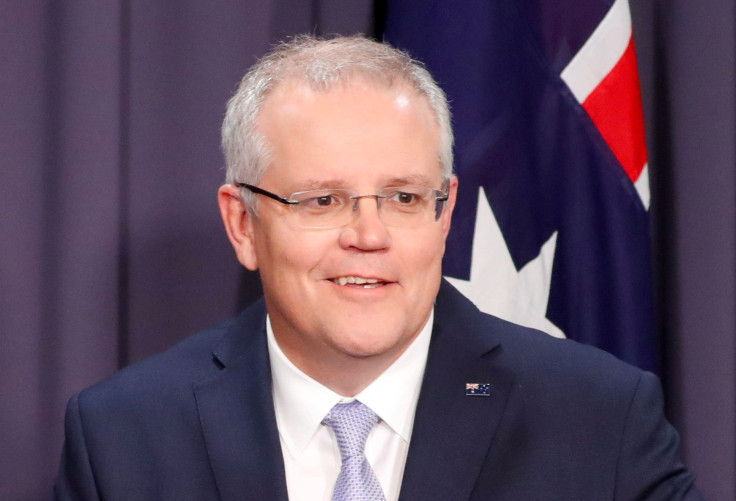Labor leads 54-46% in Newspoll that shows slight improvement for government

The government would be trounced at an election held now, although the Coalition has clawed back slightly in the past fortnight and Scott Morrison has improved his lead as better prime minister, according to the latest Newspoll.
The Coalition trails 46-54% in the poll, published in Monday’s Australian, compared with 44-56% in the first two Newspolls after the change of leader. This is the government’s 41st Newspoll loss in a row.
The Coalition’s primary vote is up 2 points to 36%, while the ALP primary vote has fallen 3 points to 39%.
Morrison leads Bill Shorten as better PM 45-32%, compared with 42-36% two weeks ago.
Morrison’s net satisfaction was plus 5; Shorten’s net rating is minus 22. In the previous Newspoll, Morrison’s net satisfaction was plus 2, while Shorten was on minus 14.
The poll comes after Morrison’s burst of intense activity to get on the front foot, including last week announcing a royal commission into aged care, and a multi-billion dollar deal aimed at placating the Catholic education sector, as well as passing tough legislation through parliament in response to the strawberry contamination.
But the Newspoll two party vote remains much worse than the last days of Malcolm Turnbull, and the controversy over his ousting continues.
In an interview on Nine on Sunday night former foreign minister Julie Bishop said she had had many calls from foreign ministers “asking why I’m no longer the foreign minister and what happened to the prime minister?
"They have been some rather unkind comments about Australia being the Italy of the South Pacific and the coup capital of the world,” she said.
Bishop said the change was perplexing “because Malcolm Turnbull was way ahead as preferred prime minister. We were coming back in the polls. It was quite close and there were no deep policy issues that divided the party”, because Turnbull had given way on a number of issues.
Bishop renewed her criticism of parliament’s Question Time, saying it “probably does more damage to the reputation of the political class than any other issue.”
“Question Time is only 70, 80 minutes a day, yet it’s what is televised. So people are concerned that that is what their well paid representatives are doing all day, every day in the parliament.
"They don’t see the thoughtful contributions and the more intelligent speeches that can be given in the Parliament because they’re not televised,” Bishop said.
“I’m afraid that not withstanding the best efforts of the Speaker and the standing orders, there’s far too much throwing of insults, and vicious behavior, name calling, and the like. And the public see that as no better than school children. In fact, not as well behaved as school children,” she said.
On the policy front, Labor at the weekend announced that if elected it would require Australian companies with more than 1000 employees to reveal how much they paid women compared with men.
“The gender gap is stubbornly high. On average, women working full time still get paid almost 15% less than men working full time. It is unacceptable that this has barely changed over the last two decades,” the opposition said.
“Companies already report their gender pay data to the Workplace Gender Equality Agency. Labor will make it public”.
In response, Morrison warned of “setting up conflict in the workplace”, while saying he was not ruling out such an idea.
“We’re open to all suggestions but these things are already reported at a sector-wide level and at an economy-wide level.” he said.
Meanwhile Kerryn Phelps, high profile independent candidate in Wentworth, has sought to make the government’s push for religious freedom protections an issue in the byelection.
She challenged the Liberals to say whether the government would release the Ruddock report on the issue before the October 20 vote, pointing out it had been sitting on it for months.
Morrison has flagged he plans to strengthen the law but it is thought the government wants to keep the detail under wraps until after Wentworth. Phelps said she was strongly opposed to any watering down of the anti-discrimination legal provisions.
Michelle Grattan, Professorial Fellow, University of Canberra
This article is republished from The Conversation under a Creative Commons license. Read the original article.





















